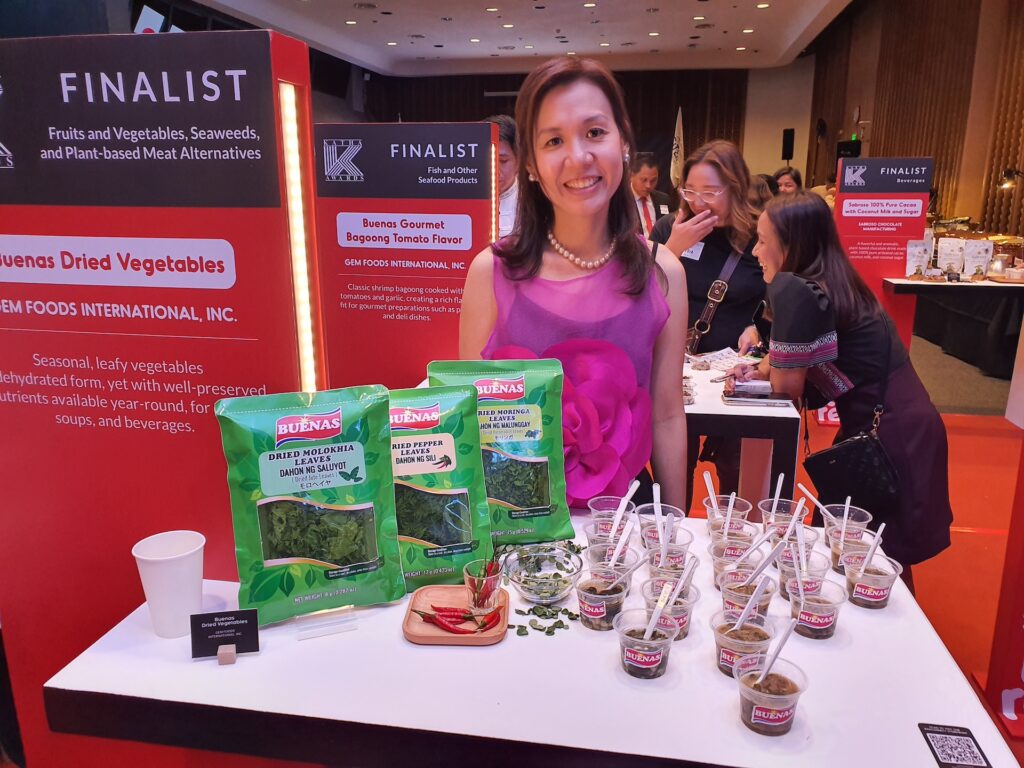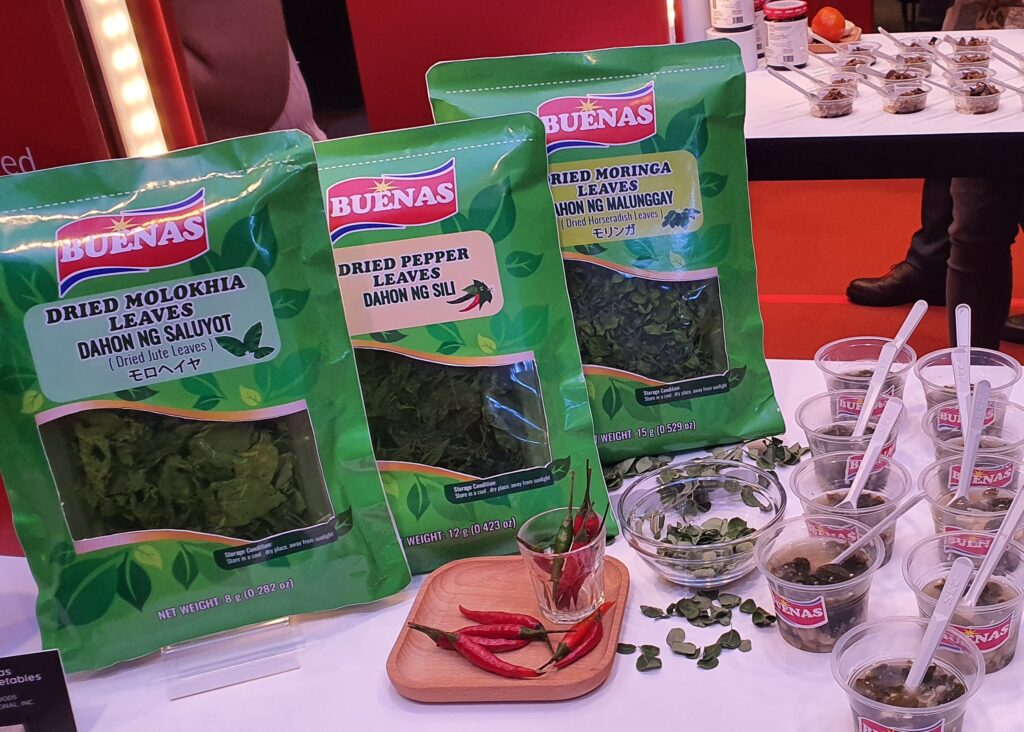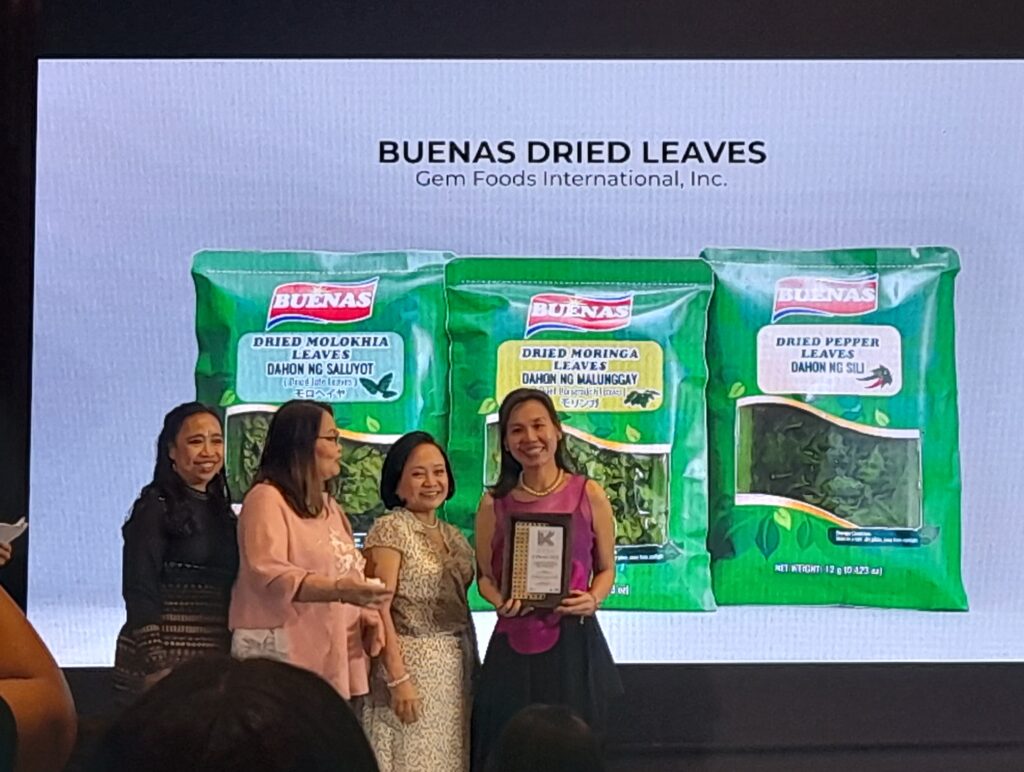
Even while millions of Filipinos work and stay for long periods of time abroad, their palates for their native dishes almost always remain.
Thus, when Philippine vegetables “saluyot” or jute leaves, pepper leaves or iron-rich “malunggay” or moringa find their way to countries that don’t grow these, the tendency is for Filipinos to buy some and cook them, either in the traditional way, or recreate something unique out of them, like moringa cookies.
The traditional way to ship them overseas is via cold storage.
Unfortunately, some stores abroad don’t have adequate freezers to store these vegetables and make them more publicly available. Moreover, shipping them frozen to different countries jacks up their prices.
Therefore, GemFoods’ innovative way of shipping them in dried form is a great way to make these vegetables more accessible, available and affordable.

“We’ve dehydrated them for longer shelf life, so that whenever these vegetables are available, anytime one wants to cook them, they are already there. This is unlike before, in their frozen forms,” said Nicole Young-Chu, GemFoods International Inc. Vice President for Business Development.
She explained that this dried form of moringa, for example, makes it very versatile.
“For moringa, you can use it both as a dish or as tea,” she noted.
Her sister, Noreen Young-Ong, GemFoods International Inc. Chief Financial Officer, said the company’s research and development unit carefully studied the benefits of dried vegetables and it had a very pleasant discovery.
“The nutritional value of vegetables, when dried, is preserved. This is because you don’t have to blanch it in water or make it stay in water. So it is very fresh, even if you rehydrate it in water while cooking.”
Ms. Ong also said dried moringa is good for baking.

“Mix it with bread and or produce ‘malunggay’ cookies, which lactating mothers would usually eat. It’s very versatile,” Ms. Ong said.
Moringa is known in the Philippines to increase milk production among breast-feeding moms.
Once when Ms. Ong was in London, some of her lactating friends told her they had to buy frozen moringa in this “one store that was offering it” to help them produce more milk.
“With the dried format, we believe this will have more reach, because you can sell it to any store that has a space. There’s no need for them to have a freezer,” she explained.
This drying technology has also set the stage for their company to attain its advocacy to reach zero food wastage among their products.
“Sometimes there’s a lot of these vegetables, but it’s seasonal. Now, if there’s an abundance of vegetables, at a certain time, we can dehydrate them and shelf them for one year,” Ms. Chu explained.
With the kind of innovation and creativity GemFoods has been investing in, some of the traditional Filipino staples may be more easily available, as they are expected to more aggressively penetrate markets abroad and make them a legacy for Filipinos globally, for ages to come.




